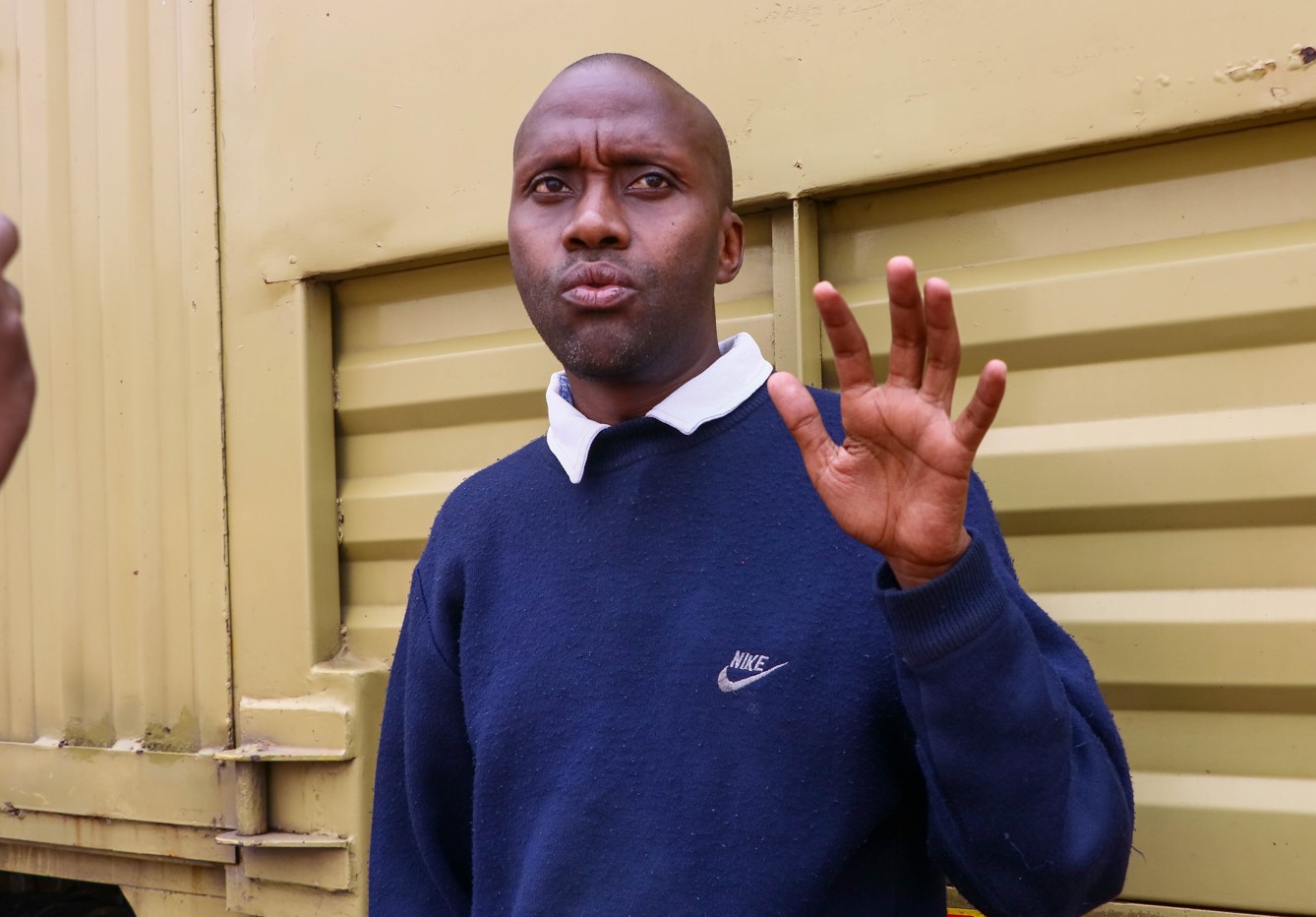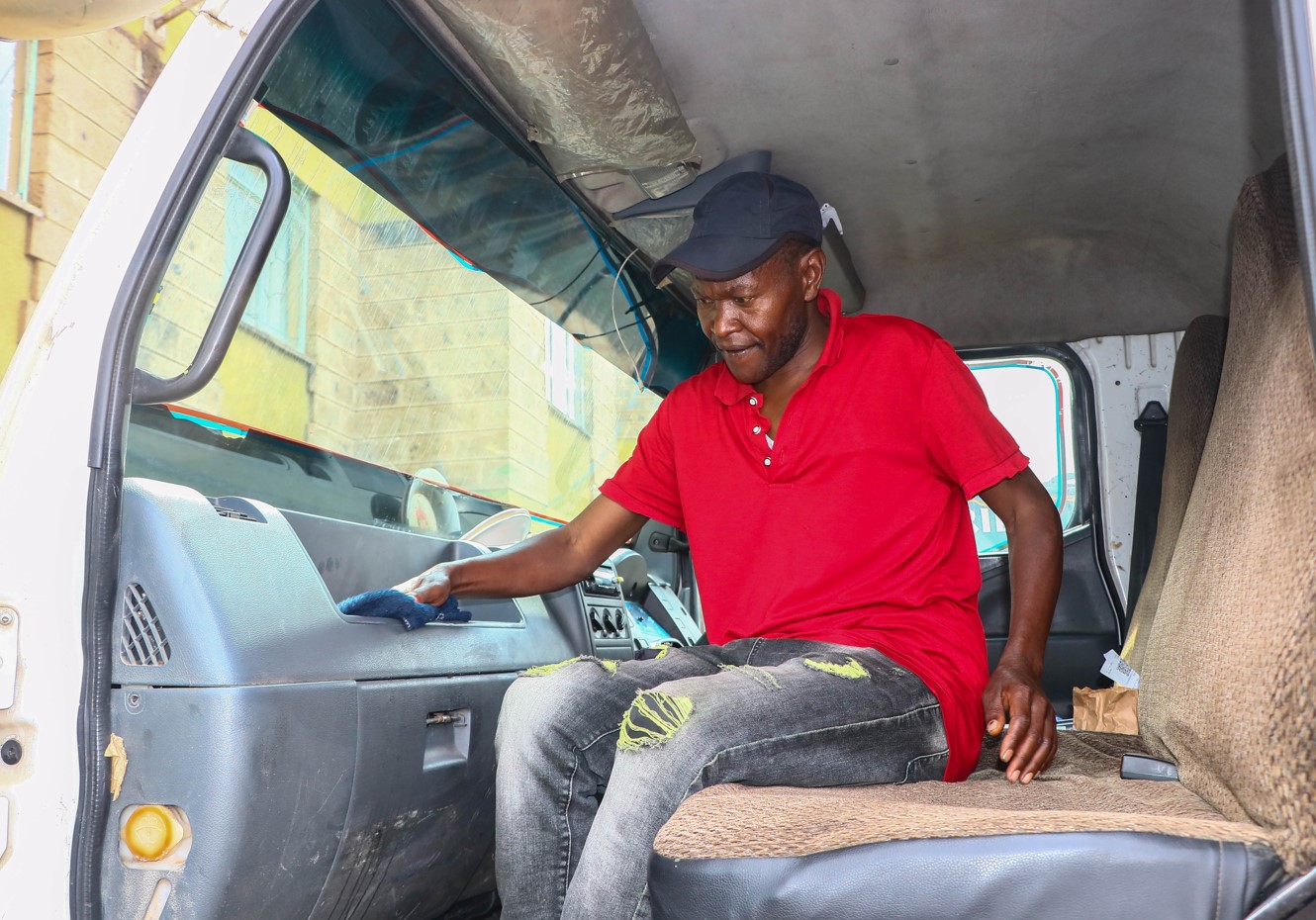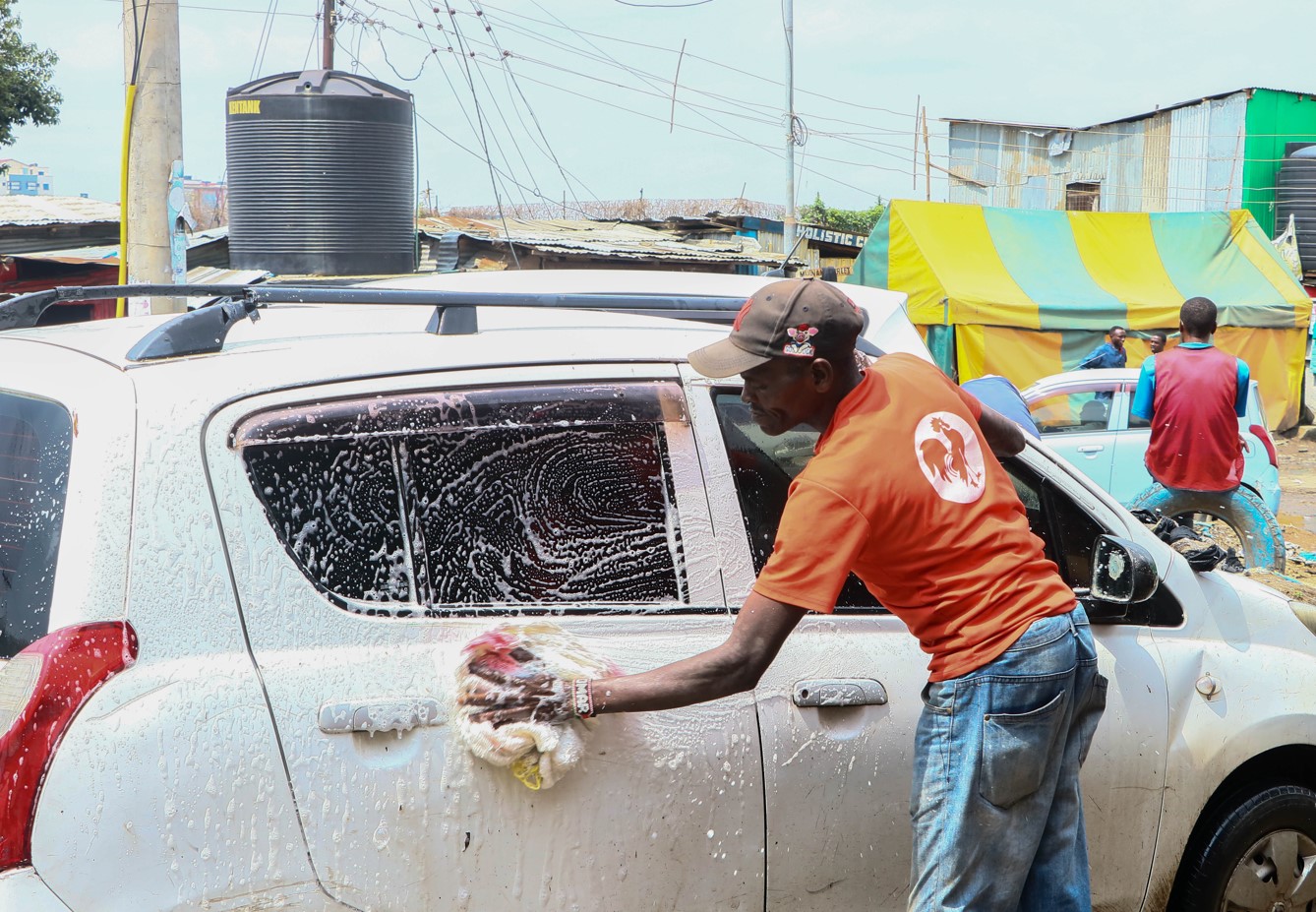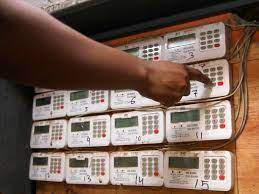Bidii self-help group transforms youth from crimes and drugs to employment
A report released in March 2024 reveals that individuals with lower economic status are more susceptible to becoming victims of crime.
For years, Julius Muhya, born and raised in the Majengo slum in Kamukunji, watched helplessly as his fellow youths sank into crime and poverty, with some even losing their lives to gun violence.
With a deep desire to bring about change, Julius and his friends decided to form a group to provide income opportunities for the youth.
More To Read
- Muinami Street upgrade brings hope to Pumwani and California residents and traders
- 2,000 trees planted in schools on Mazingira Day in Kamukunji
- Kamukunji’s Kinyago Kanuku hosts groundbreaking breast and cervical cancer screening
- Community devastated after fire claims child’s life, destroys homes in Kamukunji’s Kinyago Kanuku
- MP Yusuf Hassan donates food, blankets to victims of three Kamukunji fire incidents
- The high cost of waste: Nairobi's landfills and the hidden toll on human health
In 1998, Julius and his peers founded the Bidii Self-Help Group in Pumwani, beginning with the cleanup and operation of an abandoned community toilet. This effort was undertaken under the guidance of the chief and the county authorities
“Many members of the Bidii Self Help Group are individuals who have reformed from lives of crime and drugs. Some members have died, but those willing to change were welcomed into our group,” Julius shared.
He explained that they now run several projects, including a car wash and a kiosk, with a membership of 48 registered members and about 20 unregistered members who also contribute to the organization. “We work in shifts so that many members can be accommodated and earn a living. Our group includes both young and older individuals, all working to support themselves and their families,” Julius added.
 Julius Muhia, the vice chairperson, speaks to The Eastleigh Voice during a street interview at Bidii youth group carwash in California ward, Kamukunji sub-county, on July 11, 2024. Photo by Justine Ondieki.
Julius Muhia, the vice chairperson, speaks to The Eastleigh Voice during a street interview at Bidii youth group carwash in California ward, Kamukunji sub-county, on July 11, 2024. Photo by Justine Ondieki.
Members give Sh100 every shift to the organisation. The remaining amount is used to sustain themselves and their families. “We have a constitution and a committee that has greatly helped us with conflict resolution, enabling us to move forward smoothly,” Julius said.
He recalls that they faced issues like arrests due to mistrust of the government. However, over the years, these arrests have decreased. “Crime has greatly dropped. There was a time when we couldn’t even sit together as youths, but since we started, many people have changed. My appeal to young people is to go out there and look for opportunities,” Julius said.
He also mentioned some challenges they face, including conflicts with the county government over licencing and space.
Looking to the future, Julius envisions larger projects that can employ more youths.
Allan Kinyanzui, now 40 years old, has worked with the Bidii Self-Help Group since 2012. When he started, he was single, but over the years, the group has become a vital source of livelihood for him, his wife, and their three children. Initially, Allan worked for ten years as a non-member and only joined as a full member last year.
"Since I started working here ten years ago, my family has been sustained. I have never had to beg for food, and I am so grateful. Initially, I used to work shifts for someone else, but now I am a full member," Kinyanzui shared with pride.
 Allan Kinyanzui, a member of the Bidii youth group, cleans the dashboard at the car wash on July 11, 2024. Photo by Justine Ondieki.
Allan Kinyanzui, a member of the Bidii youth group, cleans the dashboard at the car wash on July 11, 2024. Photo by Justine Ondieki.
He mentioned that many people who once engaged in crime have found stability and purpose through the group. "When young men are busy and have a steady income, crime reduces, and that's what we have noticed. I advise the youth to find opportunities because they are out there," he emphasised.
Kinyanzui also highlighted some of the challenges they face, particularly during the rainy season, when they experience low sales. They stay resilient and motivated to persevere in the face of adversity. "On a good day, I can make between Sh1,000 and Sh1,500. On a bad day, sometimes I make as little as Sh100, but we keep pushing forward," he said.
Kamau Hemedy, now 33 years old, joined the group in 2012 and has never looked back. "My life has greatly changed. I used to engage in some theft, but I found focus here. Now, I earn a better and honest living. We make money depending on the day, but we never leave this place empty-handed," Hemedy explained.
He mentioned that the group has significantly helped many men in the area. "This area used to have a lot of crime, but now that's not the case. Police officers used to make frequent arrests, but now they don't come here because we are busy earning a living," Hemedy noted.
His advice to fellow young men is to work hard and earn a decent living. "Opportunities are there, and with hard work and determination, anyone can turn their life around," he said.
 Omar Kilonzo cleans a car at the Bidii carwash in Kamukunji subcounty on July 11, 2024. Photo by Justine Ondieki.
Omar Kilonzo cleans a car at the Bidii carwash in Kamukunji subcounty on July 11, 2024. Photo by Justine Ondieki.
A report released in March 2024 reveals that individuals with lower economic status are more susceptible to becoming victims of crime. The preliminary findings from the National Crime and Research Centre (NCRC) highlighted the factors that contribute to vulnerability to crime victimisation.
Crime victimisation refers to involuntary exposure to criminal acts, which can manifest economically, physically, psychologically, or emotionally. The report notes various factors contributing to vulnerability, including economic status (75.8%), gender (49.4%), age (41.6%), lifestyle (36.8%), social background (17.3%), literacy status (11.6%), and marital status (6.2%).
According to the report, additional risk factors contributing to crime victimisation include unemployment (81.0%), availability of alcohol, illicit drugs, and substance abuse (69.9%), idleness (63.5%), poverty (52.6%), weak law enforcement (32.6%), youth peer pressure (32.5%), corruption in the criminal justice system (22.3%), and illiteracy (20.2%).
Top Stories Today












































